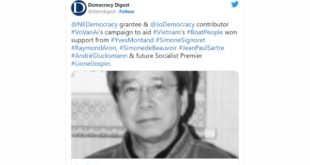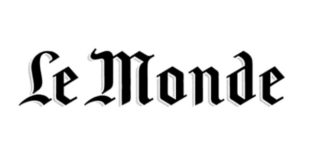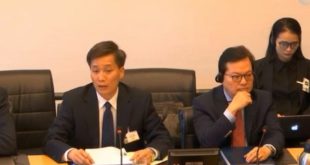CAPITOL HILL, WASHINGTON DC, 21 June 2005 (VOA) – As Vietnam’s Prime Minister Phan Van Khai prepared to meet with President Bush, members of Congress were cautioning that the government in Hanoi has a long way to go before they are satisfied with its record on human rights and religious freedom.
While they recognize the progress Vietnam and the United States have made in expanding trade relations, and continuing to strengthen diplomatic ties 10 years after the end of the U.S. trade embargo, U.S. lawmakers are not satisfied with Hanoi’s human rights record.
In a hearing timed to coincide with Mr. Khai’s meeting with President Bush, a House subcommittee heard from human rights groups and others about what one witness called Hanoi’s continuing ruthless crackdown on religious freedom.
Congressman Christopher Smith is a New Jersey Republican and one of the most outspoken members of Congress on religious freedom and human rights :
“When is enough enough ? Vietnam needs to come out of the dark ages of repression, brutality and abuse, and embrace freedom, the rule of law, and respect for fundamental human rights. Vietnam needs to act like the strategic partner of the United States we would like it to be. Treating its citizens, even those who disagree with government policies, with respect and dignity,” Mr. Smith says.
Congressman Smith describes as incongruous growing U.S. trade and and military relations with Vietnam at the same time as, what he calls, the appalling lack of respect for the basic concern of its citizens that the Vietnamese government has consistently demonstrated.
Time will tell, says Congressman Smith, if the Vietnamese government respects the May 5th agreement with the United States under which Hanoi pledged to take steps to improve its record on religious freedom to avoid possible sanctions.
Under that agreement, Vietnam agreed to release prisoners of religious conscience, reopen churches that were closed, and stop the practice of coercing renunciations of faith.
However, according to Nina Shea, vice chairperson of the U.S. Commission on International Religious Freedom, things have not gotten substantially better :
“The key words are ‘might’ and ‘future.’ The actions taken only signal promises of improvements, and not actual measurable progress,” she says. “Promises do not mean progress, and these actions do not address what landed Vietnam on the CPC (Country of Particular Concern) list in the first place. Religious prisoners remain behind bars, churches remain closed, and restrictions and harassment on all of Vietnam’s diverse religious communities continue.”
Among witnesses at the hearing was Vo Van Ai, President of the Vietnam Committee on Human Rights who also speaks for the Unified Buddhist Church of Vietnam. He says the Hanoi government has made promises about religious freedom it likely won’t keep :
“The State Department believes in Vietnam’s goodwill, but Vietnam is a master in the art of deception, and Phan Van Khai is a symbol of Hanoi’s broken promises,” Mr. Vo Van Ai says.
Critics say the Hanoi government is stepping up repression of Buddhists not part of a government-approved church, continues to detain the country’s two most prominent Buddhist dissidents, and represses ethnic Montagnards and other minorities.
Also highlighted in Monday’s hearing on the eve of Prime Minister Khai’s meeting with President Bush, was the lack of press and media freedom in Vietnam.
Republican Congressman Ed Royce says this must be considered along with the overall human rights situation in Vietnam :
“Newspapers, television, radio stations, remain under strict government control and as you know, this has expanded into control of the internet,” Mr. Royce says. “Young Vietnamese all over the world can go to chat rooms and discuss ideas, but not in Vietnam. In Vietnam, they will be turned over to the government, the government monitors this, and they will serve long, long, long sentences in prison.”
The Vietnamese prime minister’s visit to the United States comes three decades after the end of the Vietnam War, in which 58,000 Americans, and more than one million Vietnamese soldiers and civilians, died before the former South Vietnam fell to the Communist North in 1975.
 Quê Me Quê Me: Action for democracy in Vietnam & Vietnam Committee on Human Rights
Quê Me Quê Me: Action for democracy in Vietnam & Vietnam Committee on Human Rights





